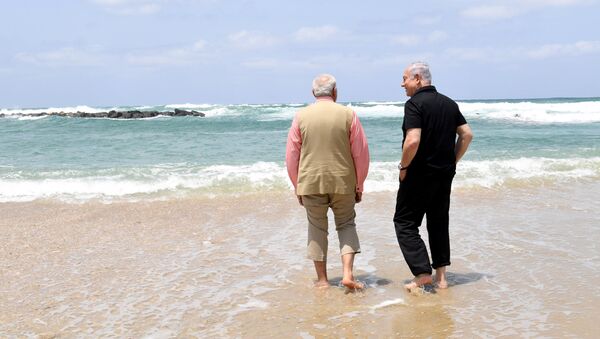The postponement of the visit is the third in a row due to “scheduling constraints”. Netanyahu was scheduled to visit India on 9 September.
"… the prime minister spoke with India's prime minister. The two agreed that due to scheduling constraints – the prime minister's visit will take place after the election", the Prime Minister Office in New Delhi said on Tuesday in a statement.
Netanyahu had earlier scheduled his India-visit in February- just ahead of Indian parliamentary polls.
Interestingly enough, the Indian side had proposed 25 August for the visit. But sources claimed Netanyahu insisted upon 9 September as he wanted to gain political points ahead of the elections.
Ahead of the visit, defence officials from the two countries were involved in high-level discussions to conclude deals worth around $2 billion. The discussions were underway to conclude deals related to the purchase of Spike anti-tank guided missiles, Spice bombs, and a long-pending proposal to purchase two Phalcon AWACS (warning systems) for more than a billion dollars.
It was not immediately clear whether the negotiations related to Spike missiles had been concluded or not.
In July, it was reported that Spike missile didn't pass the trial conducted by the Indian Army last year, which led to the cancellation of a $500 million deal with Rafael.
India wanted to purchase 321 launchers, 8,356 missiles, and 15 simulators but had to cancel in 2017 because the Indian defence ministry favoured the domestically-produced NAG anti-tank guided missile after the Defence Research and Development Organisation (DRDO) promised to develop a third-generation man-portable anti-tank guided missile by 2020.


